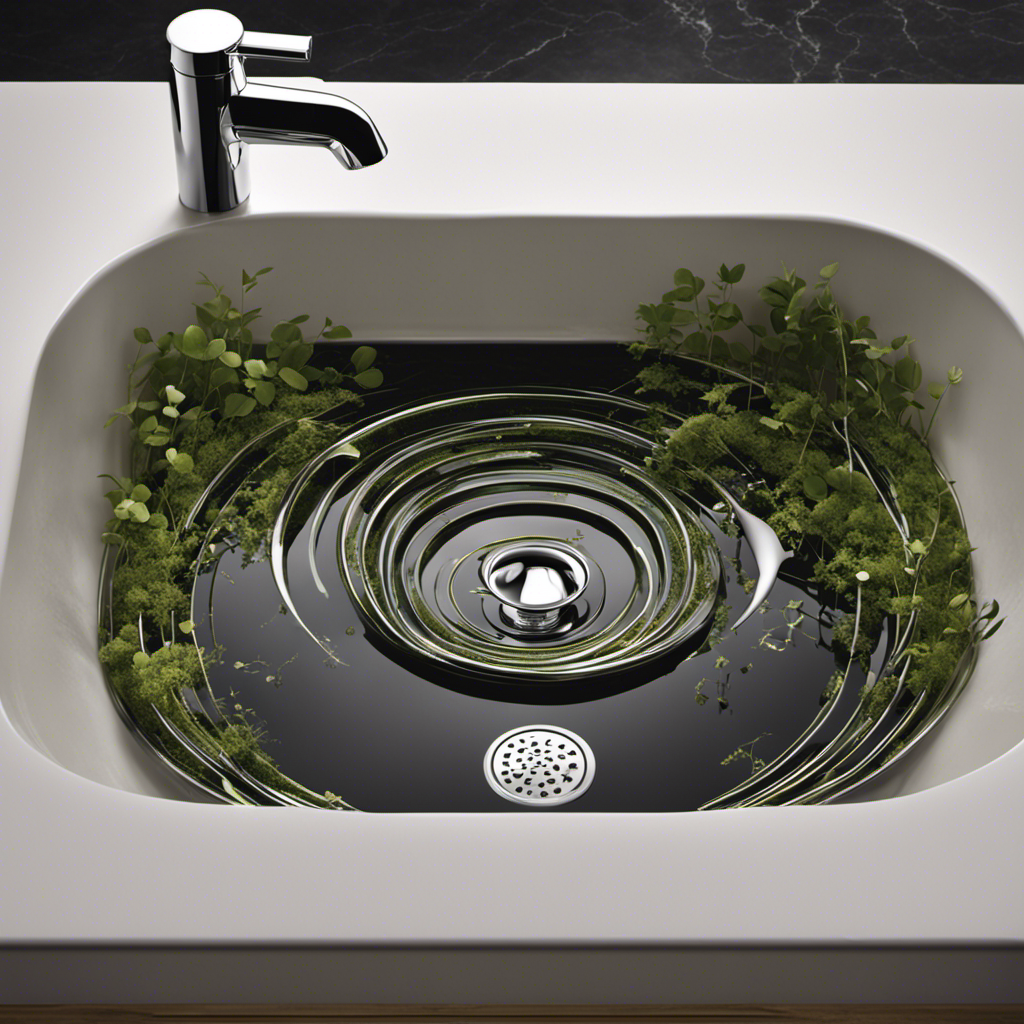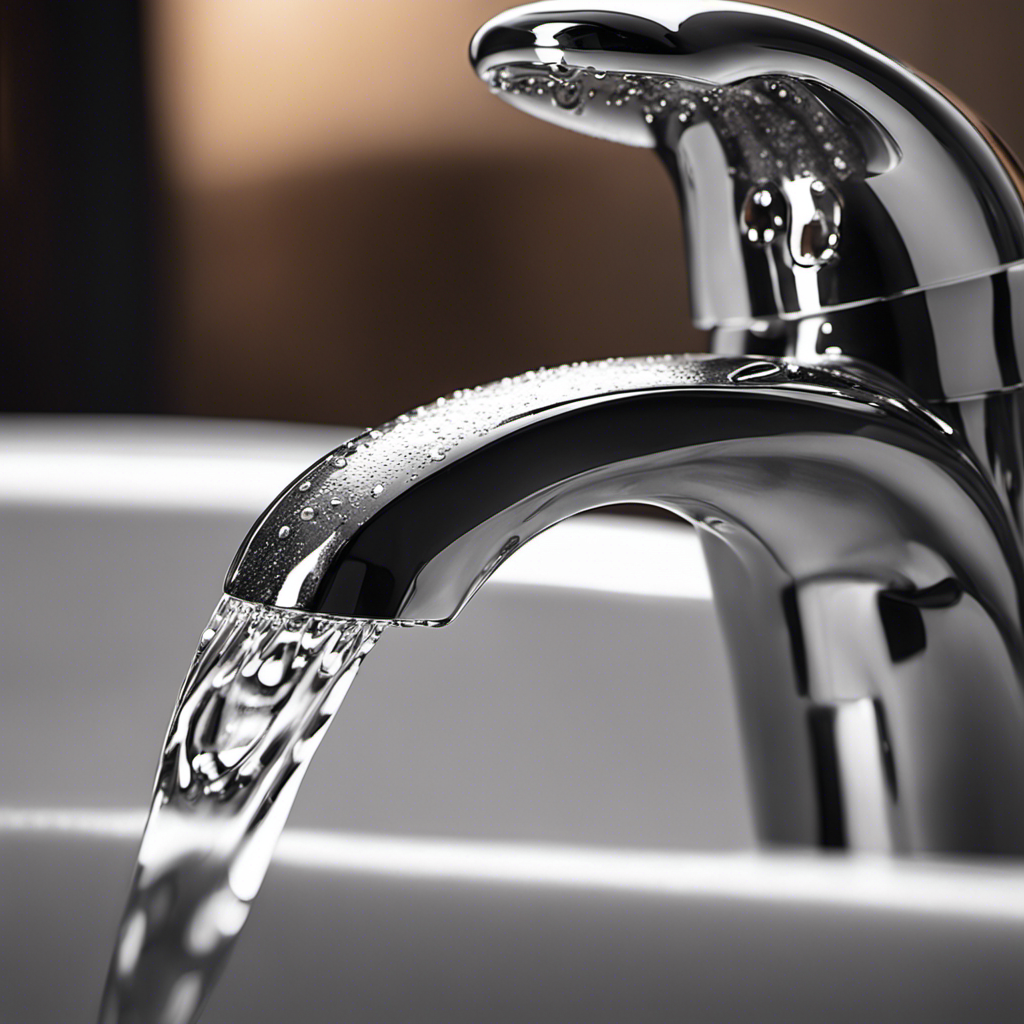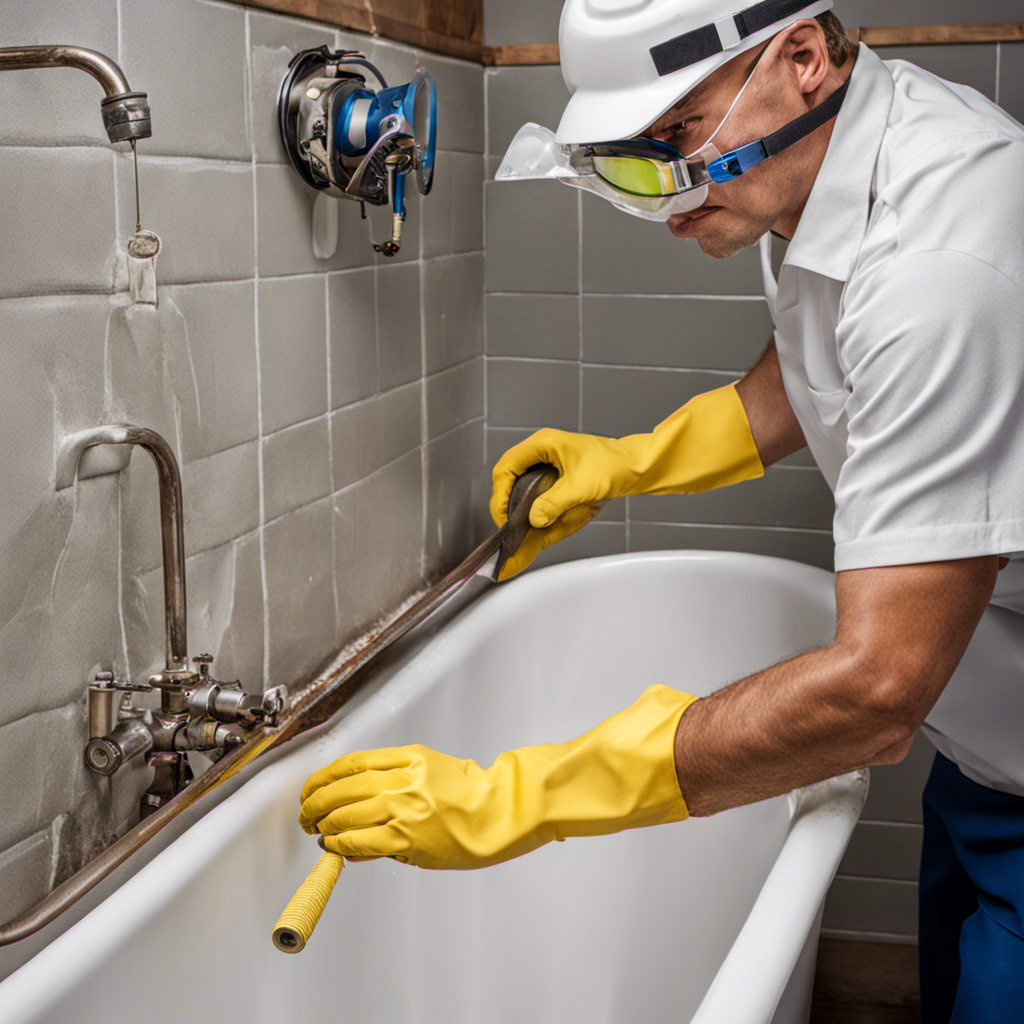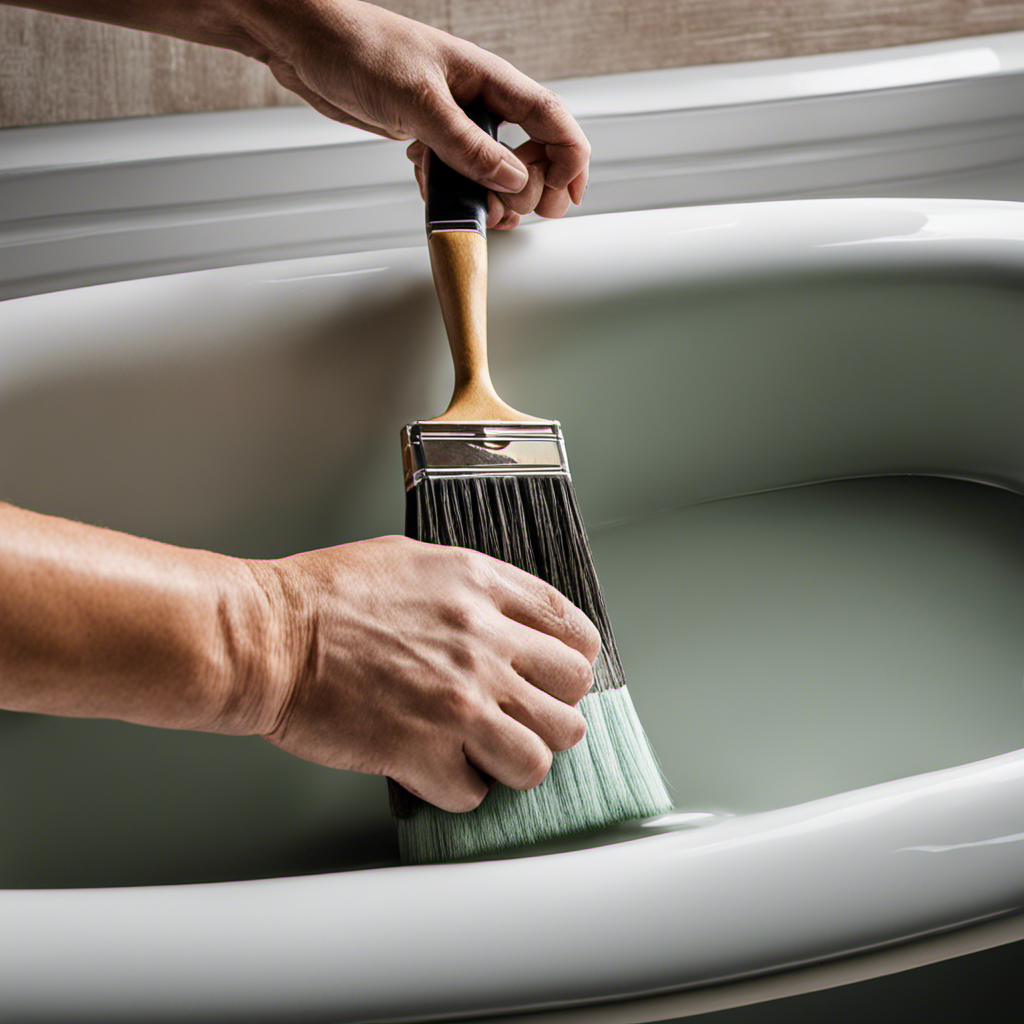As a homeowner, I’ve often wondered how a bathtub overflow drain works. It’s like a safety net, catching any excess water before it spills over and creates a watery mess.
But how does it actually prevent overflowing? In this article, we’ll dive into the inner workings of a bathtub overflow drain, exploring its components and understanding its mechanics.
By the end, you’ll have a clear understanding of how this essential feature keeps your bathroom dry and worry-free.
Key Takeaways
- A bathtub overflow drain prevents water damage by redirecting excess water away from the bathtub.
- It maintains the integrity of the flooring and prevents costly repairs.
- The overflow drain provides a safety feature by reducing the risk of slips and falls.
- It ensures a worry-free bathing experience and keeps the bathroom dry and damage-free.
The Purpose of a Bathtub Overflow Drain
The purpose of a bathtub overflow drain is to prevent water from overflowing and causing damage. The design of a bathtub overflow drain is simple yet effective. It consists of a small opening near the top of the bathtub that connects to a pipe leading to the drain. When the water level in the tub reaches the overflow opening, it flows into the drain pipe, ensuring that the water does not spill over onto the floor.
Having a bathtub overflow drain has several benefits. Firstly, it prevents water damage by redirecting excess water away from the bathtub. This helps to maintain the integrity of the flooring and prevents costly repairs. Additionally, it provides a safety feature by preventing the bathtub from overflowing, reducing the risk of slips and falls.
Components of a Bathtub Overflow Drain
One important component of a bathtub overflow drain is the gasket. The gasket is a small rubber ring that provides a watertight seal between the drain and the tub. During the installation process of a bathtub overflow drain, the gasket is placed over the drain pipe before it is inserted into the overflow hole. This ensures that water does not leak out of the drain assembly and cause damage to the surrounding area.
Common problems with bathtub overflow drains can include leaks, clogs, or a faulty gasket. To fix a leaky overflow drain, one can tighten the screws that secure the drain cover or replace the gasket if it is damaged. Clogs can be cleared using a plunger or a drain snake. If the gasket is faulty, it should be replaced to ensure a proper seal.
Regular maintenance and inspection of the bathtub overflow drain can help prevent these problems and ensure the drain works effectively.
How Does a Bathtub Overflow Drain Prevent Overflowing
To prevent overflowing, you’ll find a small hole near the top of the tub, which allows excess water to drain out. The bathtub overflow drain is an essential component that helps maintain the proper water level and prevent potential incidents.
The importance of maintaining the proper bathtub water level cannot be overstated. It ensures a comfortable bathing experience and prevents any potential damage to your bathroom.
Here are the common causes of bathtub overflow incidents:
- Negligence: Forgetting to turn off the faucet or leaving the water running unattended can quickly lead to an overflow.
- Blockages: Accumulated debris, hair, or soap scum can clog the drain and hinder the water from flowing freely.
- Malfunctioning drain stopper: If the drain stopper fails to seal properly, it can allow water to escape the tub, leading to an overflow.
Understanding the Mechanics of a Bathtub Overflow Drain
Understanding how a bathtub overflow drain functions can help you maintain the proper water level and prevent potential incidents. The overflow drain is an essential component of the bathtub’s drainage system, designed to prevent overflow by redirecting excess water. It works by providing an alternative path for water to escape when the water level exceeds a certain limit.
To illustrate the mechanics of a bathtub overflow drain, let’s take a closer look at its key components and their functions:
| Component | Function |
|---|---|
| Overflow opening | Allows excess water to enter the overflow drain |
| Overflow drain pipe | Carries the excess water away from the bathtub |
| Drainage system | Connects the overflow drain pipe to the main drain system of the house |
As water flows into the overflow opening, it enters the overflow drain pipe and is redirected to the main drainage system. This process ensures that the water level in the bathtub remains at a safe and manageable level, preventing potential incidents such as flooding or damage to the surrounding area. Understanding the mechanics of a bathtub overflow drain can help you maintain a properly functioning and safe bathing experience.
Maintenance Tips for a Bathtub Overflow Drain
Taking care of your bathtub’s overflow drain is crucial to ensure that it functions properly and prevents any potential issues. Proper maintenance of the overflow drain can help prevent clogs, mold growth, and water damage in your bathroom.
Here are some tips for cleaning and troubleshooting common issues with your bathtub’s overflow drain:
-
Cleaning:
-
Use a mixture of baking soda and vinegar to dissolve any buildup or residue in the drain.
-
Use a small brush or toothbrush to scrub the drain and remove any stubborn debris.
-
Troubleshooting:
-
If you notice a foul odor coming from the overflow drain, it may indicate a clog or bacteria buildup. Use a drain snake or plunger to clear the clog.
-
If water is not draining properly through the overflow drain, check for any obstructions and remove them if necessary.
Frequently Asked Questions
Can a Bathtub Overflow Drain Be Installed in Any Type of Bathtub?
Yes, a bathtub overflow drain can be installed in most types of bathtubs. However, it is important to consider the pros and cons of using a bathtub overflow drain before installation.
What Should I Do if My Bathtub Overflow Drain Is Not Functioning Properly?
If my bathtub overflow drain is not functioning properly, I would first check for common causes like clogs or faulty seals. Troubleshooting tips include using a plunger or drain snake. I can repair it without professional help by replacing worn-out parts or sealing any leaks.
Are There Any Alternative Methods to Prevent Bathtub Overflow Besides Using an Overflow Drain?
There are alternative methods for overflow prevention techniques in bathtubs, such as bathtub design alternatives. These methods can be effective in preventing overflow without relying solely on an overflow drain.
How Can I Clean and Maintain My Bathtub Overflow Drain to Prevent Clogging?
To clean and maintain my bathtub overflow drain, I use a mixture of vinegar and baking soda. I pour it down the drain, let it sit for a few minutes, then flush with hot water. It prevents clogging and keeps the drain flowing smoothly.
Is It Possible to Remove or Disable the Overflow Drain in a Bathtub?
No, it is not recommended to remove or disable the bathtub overflow drain. The overflow drain is a crucial component that prevents water from overflowing and causing damage. Removing or disabling it can lead to potential flooding and structural issues.
Conclusion
In conclusion, the bathtub overflow drain is a crucial component in preventing overflowing water in your tub. By understanding the mechanics of how it works, you can ensure its proper functioning and avoid any potential damage.
Regular maintenance is essential to keep the drain clear of debris and blockages. Just like a well-oiled machine, the bathtub overflow drain quietly and efficiently does its job, silently diverting excess water away, ensuring a peaceful and relaxing bathing experience.









